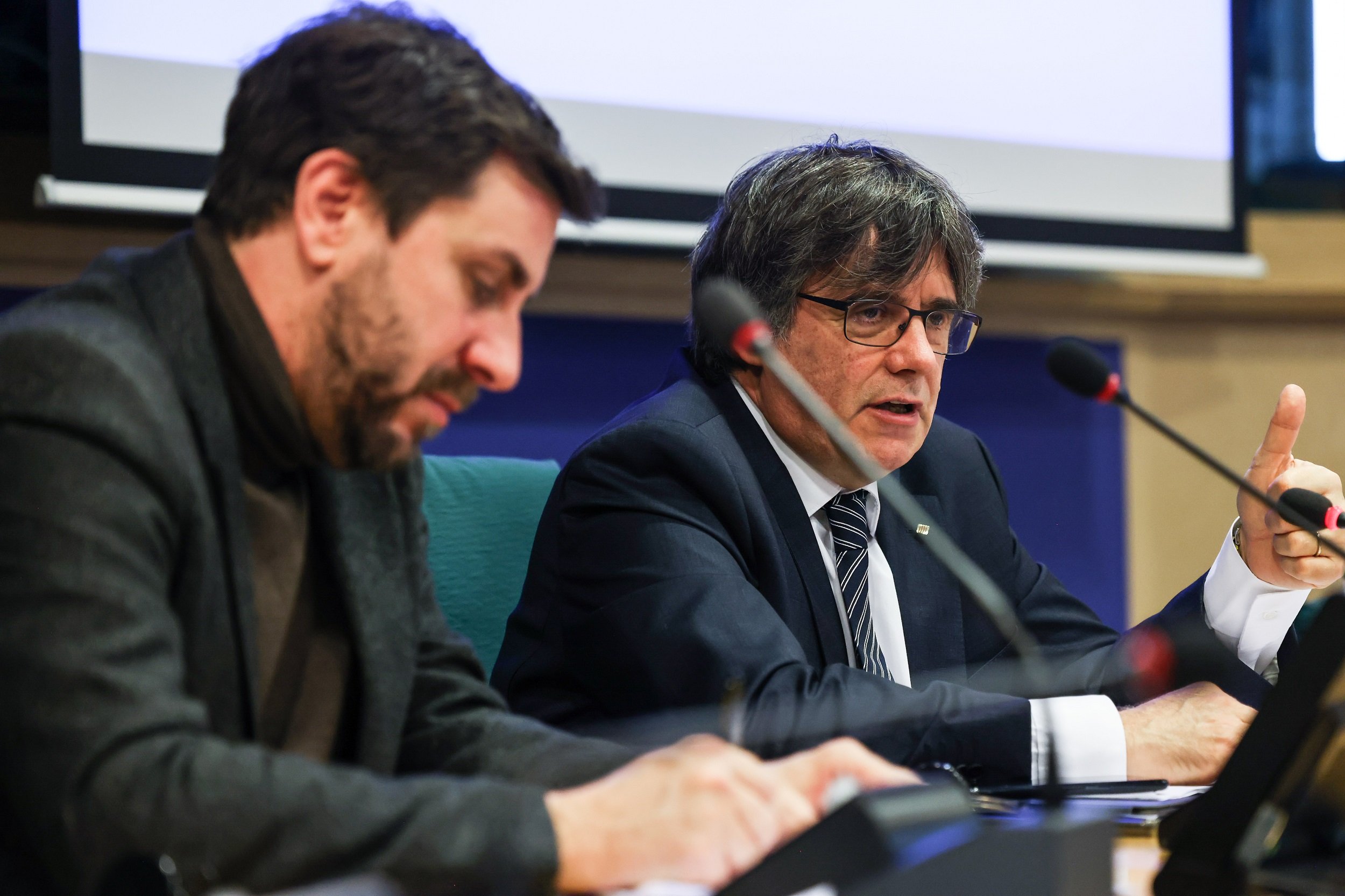Spanish public prosecutors have already announced they will take action in response to the unusual decision made this Wednesday morning by the country's Constitutional Court, in relation to exiled Catalan politicians Carles Puigdemont and Toni Comín. The decision, taken by the three judges of the Sala de Vacaciones ("holiday chamber") of the court, which deals with urgent cases during the month of August, rejected the appeal presented by Puigdemont and Comín alleging breaches of their constitutional rights in their prosecution for aggravated misuse of funds and disobedience, in connection with the Catalan independence process. The rejection came from the two votes from judges in the conservative sector of the court - César Tolosa and Concepción Espejel - while a third judge, progressive sector jurist Laura Díez, presented a minority opinion expressing her disagreement with "the urgency" of the decision. Neither Comín nor Puigdemont are in Spain, nor are they deprived of their freedom, asserted Díez. The conservative judges argue that the urgency to resolve the appeal is due to the fact that Puigdemont and Comín had requested an urgent injunction once the case was presented to the Constitutional Court at the end of July. And all of this takes place while the PSOE is negotiating the formation of a new government following Spain's July 23rd election, a process in which Puigdemont and the Together for Catalonia (Junts) party is likely to be a key player.
As sources from the public prosecutor's office have informed ElNacional.cat this afternoon, the prosecution will appeal the resolution in September because it understands that "there is no urgency" to resolve the issue raised by the two Junts MEPs and, by this action, it will force the appeal to be debated by the full plenary session of the Constitutional Court - which has a majority of progressive judges.
Unprecedented decision
So far, all the appeals presented in relation to the Catalan independence process have been accepted for processing and subsequently studied by the full Constitutional Court, not a chamber made up of only three judges, like this one. However, the initial statement in the ruling states that the holiday chamber "is competent" to resolve this appeal, which requested the interim suspension of a judicial resolution that agreed to the deprivation of liberty, through the aforementioned arrest warrant. The judge investigating the process at the Supreme Court, Pablo Llarena, ordered the arrest of Puigdemont given that he decided at the start of this year to prosecute the exiled Catalan leader for the crimes of disobedience and aggravated misuse of funds as part of the review he carried out after the entry into force of the Penal Code reform which repealed the Spain's sedition law, under which the MEPs were being investigated.
In their appeal for protection of their constitutional rights, Puigdemont and Comín argued that Llarena's decision violates the "guarantee of immunity" that they are recognized as holding as members of the European Parliament, and this breach means that several fundamental rights are violated. In this regard, the ruling on the inadmissibility of the appeal, presented by the holiday chamber states that the indicated violations "lack constitutional maintenance" because they omit the decisions of both the European Parliament and European justice that have withdrawn this immunity.

